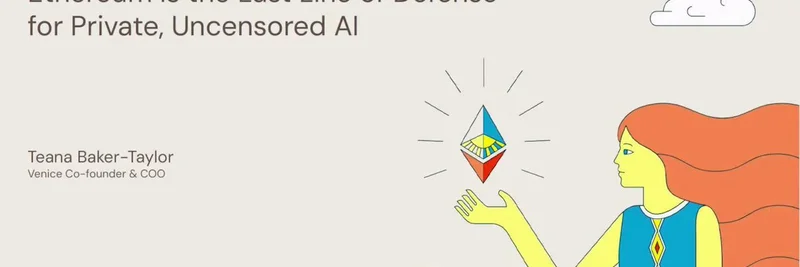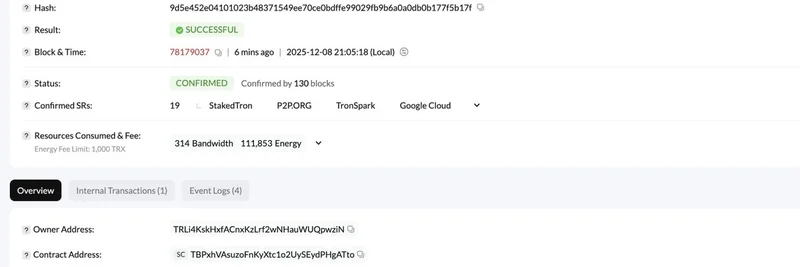In a thought-provoking presentation at the Ethereum Community Conference (EthCC), Teana Baker-Taylor, Vice President of CoinDesk and COO of Venice, articulated a compelling vision of Ethereum's role in safeguarding privacy and ensuring uncensored access to artificial intelligence (AI). The talk, titled "Ethereum is the Last Line of Defense for Private, Uncensored AI," underscores the growing importance of decentralized technologies in an era where surveillance and censorship pose significant threats to individual freedoms.
The Intersection of Ethereum and AI Privacy
Baker-Taylor's presentation highlighted the critical juncture at which Ethereum and AI privacy converge. She argued that privacy is not merely a feature but a form of resistance against a surveillance state that seeks to catalog every thought and interaction. This perspective is particularly resonant in a world where data breaches and governmental overreach are increasingly common.
Ethereum, with its decentralized nature, offers a robust framework for maintaining privacy. Unlike centralized systems, which are vulnerable to single points of failure and control, Ethereum's distributed ledger technology ensures that data is not stored in a single location, making it inherently more secure against unauthorized access.
The Threat of Surveillance Capitalism
The discussion also delved into the concept of surveillance capitalism, a term coined to describe the commodification of personal data by corporations and governments. Baker-Taylor pointed out that every private conversation with AI represents an act of defiance against this system. By leveraging Ethereum, individuals can engage with AI in a manner that is both private and uncensored, thereby preserving their autonomy and freedom of expression.
Ethereum's Role in Uncensored AI
One of the key points of the presentation was the role of Ethereum in facilitating uncensored AI. Centralized AI systems are often subject to the whims of their operators, who may impose restrictions based on political, commercial, or social pressures. Ethereum, however, provides a platform where AI can operate without such constraints, ensuring that users have access to unbiased and unrestricted information.
This is particularly important in contexts where censorship is prevalent. For instance, in regions where freedom of speech is curtailed, Ethereum-based AI can serve as a lifeline, providing access to information that might otherwise be suppressed.
Practical Implications and Future Directions
Baker-Taylor's insights have practical implications for developers, policymakers, and users alike. For developers, it underscores the importance of building AI systems on decentralized platforms like Ethereum. For policymakers, it highlights the need to consider the role of blockchain technology in protecting digital rights. And for users, it offers a glimpse into a future where privacy and uncensored access to information are not just ideals but realities.
The presentation also touched on the broader implications for the blockchain community. As Ethereum continues to evolve, its role in supporting privacy and uncensored AI will likely become even more pronounced. This could lead to new applications and innovations that further entrench Ethereum's position as a cornerstone of the decentralized web.
Conclusion
Teana Baker-Taylor's talk at EthCC serves as a powerful reminder of the stakes involved in the ongoing battle for privacy and uncensored access to AI. By positioning Ethereum as the last line of defense, she invites us to consider the profound impact that decentralized technologies can have on our digital lives. As we move forward, the integration of Ethereum and AI will undoubtedly play a crucial role in shaping a future where privacy and freedom are preserved.
For those interested in diving deeper, the full video of the presentation is available here, offering a comprehensive look at the arguments and evidence presented by Baker-Taylor.



